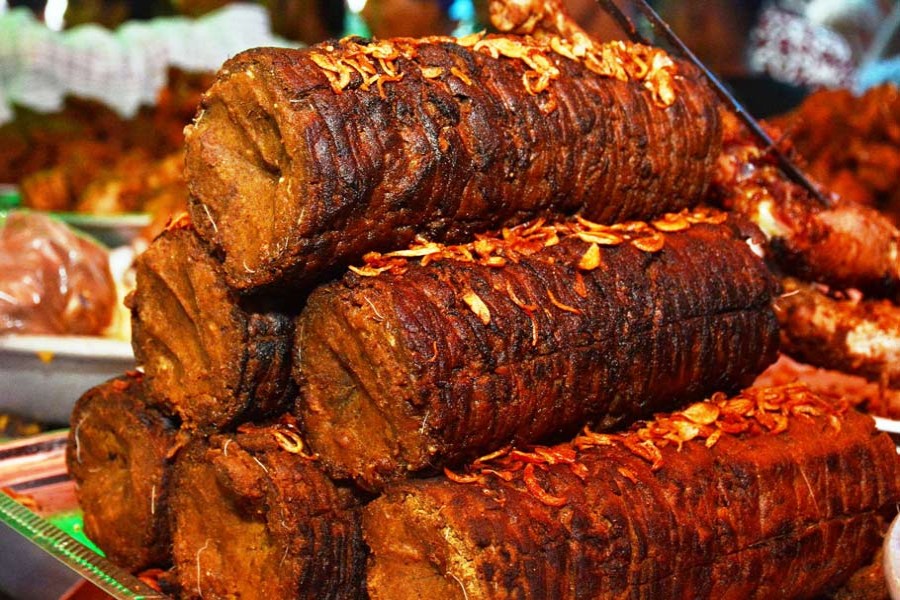During the month of Ramadan, breaking the dawn to dusk fasting with modest but nutritious Iftar at evening is preferable. But in Bangladesh, mouth-watering gastronomic delicacies with low nutritional value are widely consumed as Iftar. Though presence of fruits are there, a large section of people prefer to take yummy foods. Many of them also like to enjoy tasty dinner followed by Iftar. Thus the food habit in Ramadan sometimes turns unhealthy.
Now the hotels and restaurants across the country are successfully tapping the demand of tasty Iftar. From five-star hotels to ordinary restaurants, all are offering different kinds of tasty Iftar. Posh restaurants are offering delicious Iftar packages. Hotels and restaurants are offering discounts to debit and credit card holders for enjoying Iftar. Some of those are also offering Sehri - the pre-dawn meal before the fasting starts.
Enjoying the Iftar at posh restaurants has become a fashion mostly among young and wealthy people. They love to enjoy tasty and fashionable foods as Iftar with their friends and families. Then there are corporate and business Iftar parties. The well-off people apparently enjoy high-priced Iftar. It is not only the food, but also the surrounding comforts that inspire people to pay hefty bills.
Again, Iftar parties are taking place almost every day in different places including restaurants and community centres. Iftar party is generally recognised as a social gathering during Ramadan where people meet each other. It is an old tradition. But gone are the days when Iftar party was truly a symbol of social bonding. Current trend of Iftar party is mostly intended to demonstrate affluence and influence by different sections of people in society.
There is also a growing trend to purchase Iftar from restaurants. No doubt that a good number of people find it comfortable to purchase Iftar from outside to change the monotonous home-made Iftar. Again, many people are also compelled to do so due to some unavoidable reasons. By doing this, many of them are also compromising their health. It is because most of the restaurants and food shops are not following adequate hygienic conditions while preparing and serving foods.
Nevertheless, Iftar is now a big business and its economy is growing every year as demand rises. Hundreds of thousands of people are directly and indirectly living on Iftar economy during the Ramadan. At the same time, the extravaganza of Iftar and Sehri is also a clear reflection of growing consumerism in society. Thanks to concentration of maximum wealth to a few hands, income as well as expenditure disparities are on rise in the country.
Socio-economic disparity is so visible that many organisations arrange Iftar for poor and marginal people in this month. Some corporate and wealthy people also actively contribute to support different initiatives for distributing Iftar to needy ones. Besides growing consumerism, the charity for Iftar indicates that spirit of Ramadan ultimately prevails.


